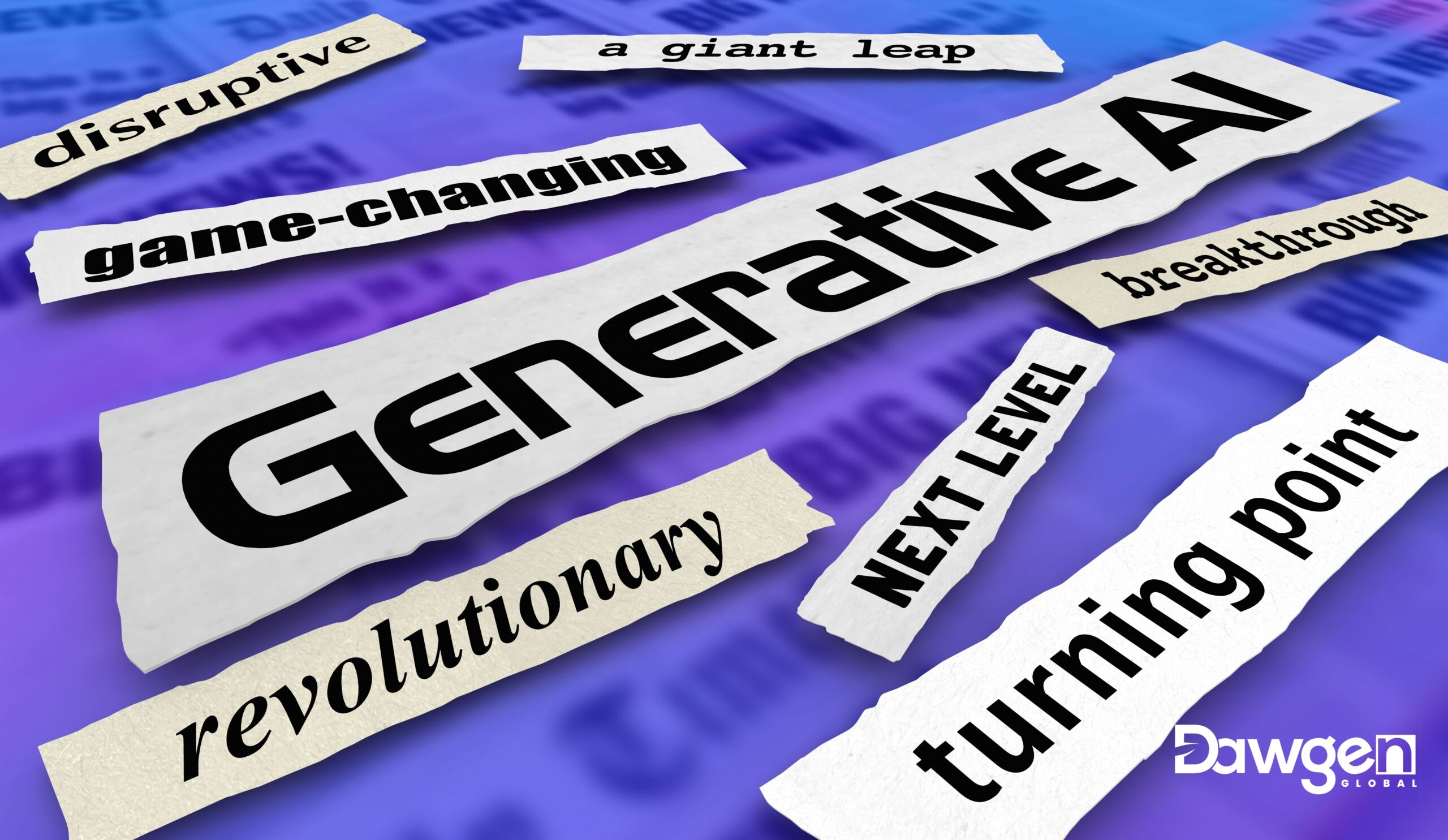 Generative AI is evolving at a record speed, disrupting industries and redefining the way businesses operate. However, while the technology’s capabilities expand rapidly, many CEOs are still grappling with understanding its business value and associated risks. A key aspect of this learning curve involves distinguishing generative AI from other types of artificial intelligence (AI) and determining how it can be effectively leveraged in their organizations.
Generative AI is evolving at a record speed, disrupting industries and redefining the way businesses operate. However, while the technology’s capabilities expand rapidly, many CEOs are still grappling with understanding its business value and associated risks. A key aspect of this learning curve involves distinguishing generative AI from other types of artificial intelligence (AI) and determining how it can be effectively leveraged in their organizations.
Understanding Generative AI
Generative AI refers to artificial intelligence models that can create new content—text, images, audio, code, and even videos—by learning patterns from vast datasets. The most well-known examples include OpenAI’s ChatGPT, Google’s Gemini, and Meta’s Llama models. Unlike traditional AI, which primarily focuses on analyzing data, making predictions, and automating repetitive tasks, generative AI goes beyond automation—it generates entirely new content that mimics human creativity and reasoning.
How Generative AI Differs from Traditional AI
To appreciate the full potential of generative AI, it is crucial to understand how it diverges from traditional AI models.
| Feature | Traditional AI | Generative AI |
|---|---|---|
| Functionality | Analyzes data, makes predictions, and automates processes | Creates new content such as text, images, code, and audio |
| Data Processing | Extracts patterns and insights from structured or unstructured data | Learns from vast datasets and generates new, human-like outputs |
| Use Cases | Fraud detection, recommendation systems, process automation, predictive analytics | Content creation, personalized marketing, AI-driven chatbots, software development |
| User Interaction | Provides answers based on existing data; structured responses | Engages in human-like conversations, generates unique outputs |
| Examples | Chatbots, search algorithms, risk assessment tools, medical diagnosis AI | ChatGPT, DALL·E, Copilot for coding, AI-generated music and art |
The Business Value of Generative AI
CEOs must evaluate how generative AI can be integrated into their business strategies to unlock new opportunities. Here are some of the key advantages:
- Enhanced Productivity and Efficiency
- Automates content creation, customer service, and marketing, reducing workload and turnaround time.
- Enables employees to focus on strategic, high-value tasks rather than routine work.
- Personalization and Customer Engagement
- AI-driven chatbots and virtual assistants provide real-time, tailored responses to customers.
- Personalized marketing content increases customer retention and engagement.
- Innovation and Competitive Advantage
- Generates new ideas, designs, and prototypes, accelerating innovation in product development.
- AI-driven insights help businesses identify emerging trends and market opportunities.
- Software Development and Automation
- Assists in writing and debugging code, reducing software development cycles.
- Automates repetitive and time-consuming business processes.
Risks and Challenges for CEOs
Despite its transformative potential, generative AI poses several risks that CEOs must carefully manage:
- Data Privacy and Security Risks
- AI-generated content may inadvertently expose sensitive company data.
- Malicious actors can use generative AI for deepfakes, misinformation, or cyber threats.
- Intellectual Property and Legal Concerns
- Ownership of AI-generated content remains a gray area in many jurisdictions.
- Copyright and licensing issues arise when AI-generated content is trained on third-party data.
- Bias and Ethical Concerns
- Generative AI models can inherit biases from their training data, leading to discriminatory outcomes.
- Businesses must ensure AI-generated content aligns with ethical standards and company values.
- Regulatory and Compliance Challenges
- Many countries are implementing regulations to govern AI usage in business.
- CEOs must stay ahead of compliance requirements to mitigate potential legal risks.
Final Thoughts
As generative AI continues to evolve, business leaders must strike a balance between leveraging its advantages and mitigating its risks. Unlike traditional AI, which primarily focuses on analysis and automation, generative AI opens new frontiers in creativity, personalization, and decision-making.
For CEOs, the key to success lies in:
- Gaining a deep understanding of AI capabilities and limitations.
- Developing a robust AI strategy aligned with business goals.
- Implementing governance frameworks to manage risks and compliance.
Dawgen Global is committed to helping businesses navigate the complexities of AI adoption, ensuring that organizations harness the power of generative AI to drive innovation while maintaining ethical and regulatory standards.
Next Step!
“Embrace BIG FIRM capabilities without the big firm price at Dawgen Global, your committed partner in carving a pathway to continual progress in the vibrant Caribbean region. Our integrated, multidisciplinary approach is finely tuned to address the unique intricacies and lucrative prospects that the region has to offer. Offering a rich array of services, including audit, accounting, tax, IT, HR, risk management, and more, we facilitate smarter and more effective decisions that set the stage for unprecedented triumphs. Let’s collaborate and craft a future where every decision is a steppingstone to greater success. Reach out to explore a partnership that promises not just growth but a future beaming with opportunities and achievements.
✉️ Email: [email protected] 🌐 Visit: Dawgen Global Website
📞 Caribbean Office: +1876-6655926 / 876-9293670/876-9265210 📲 WhatsApp Global: +1 876 5544445
📞 USA Office: 855-354-2447
Join hands with Dawgen Global. Together, let’s venture into a future brimming with opportunities and achievements

